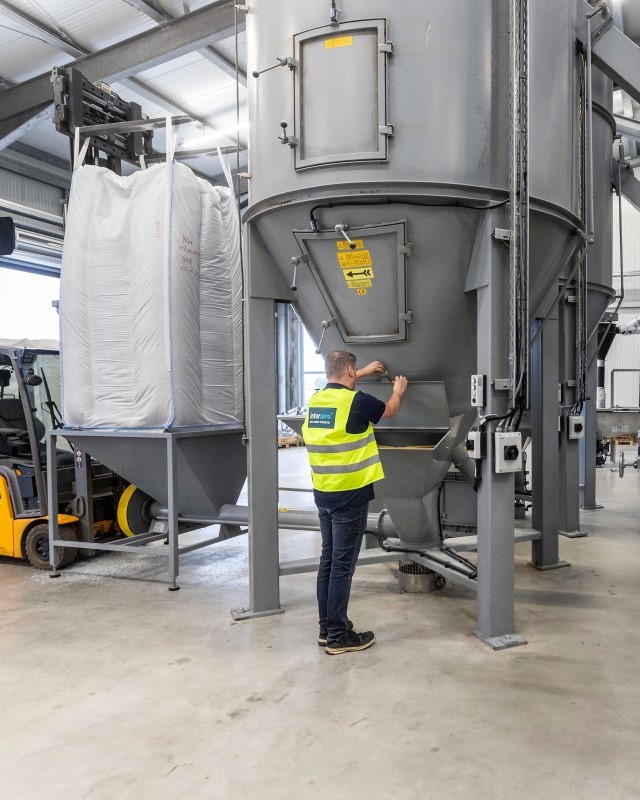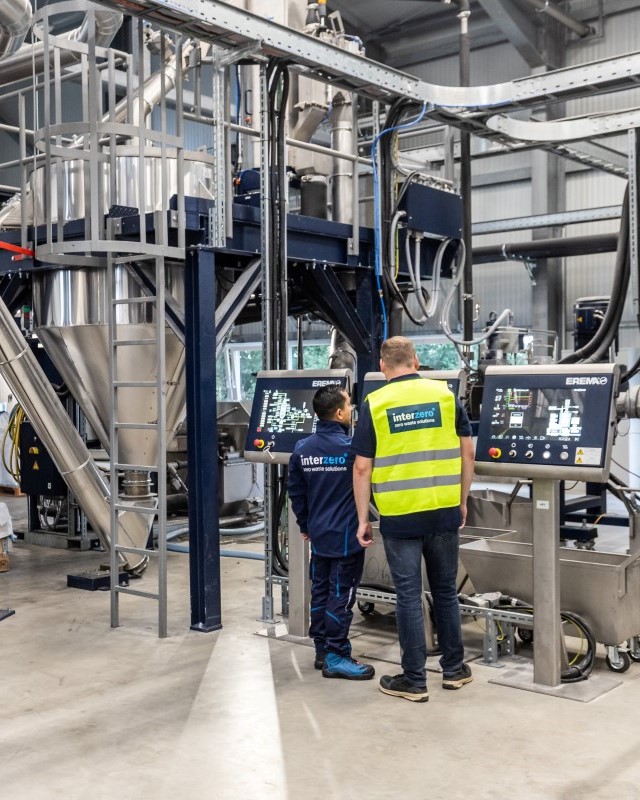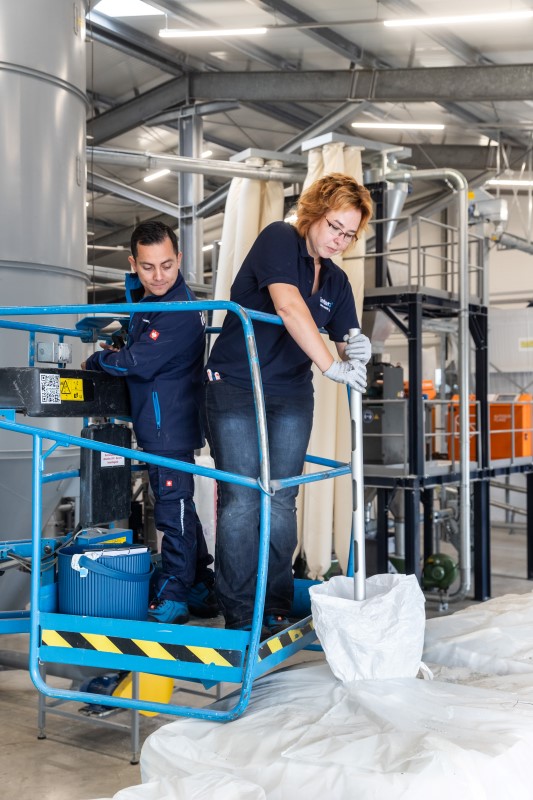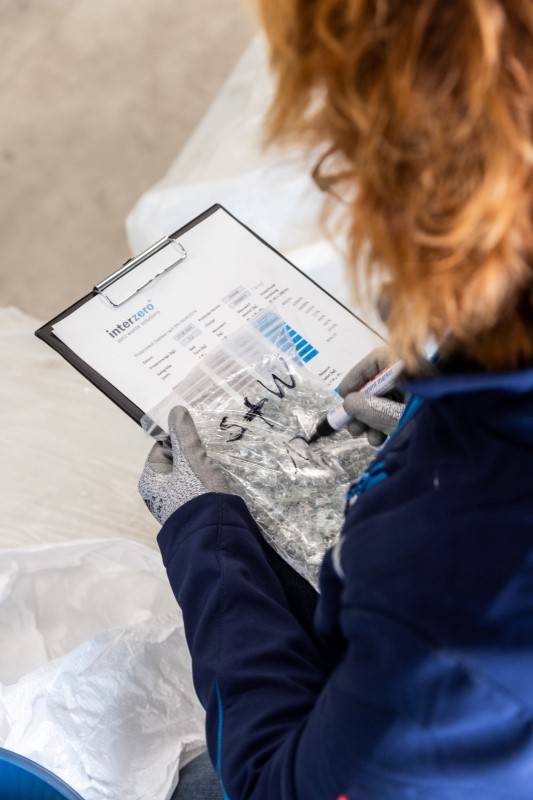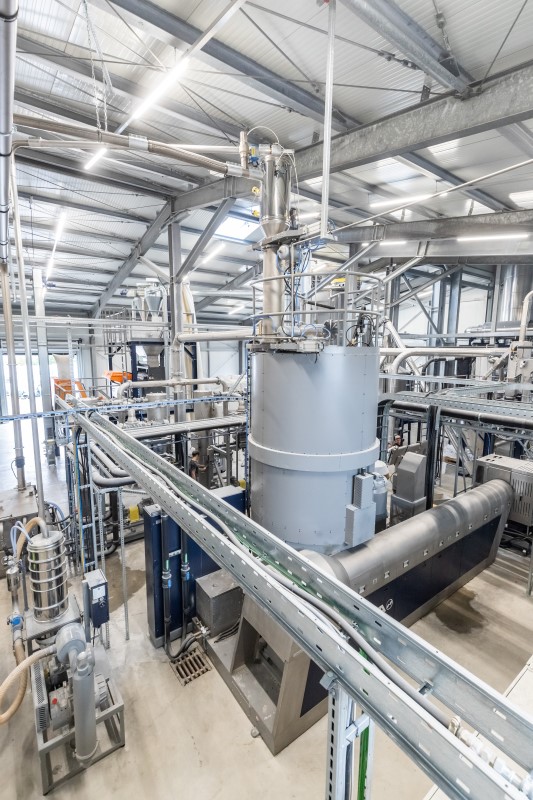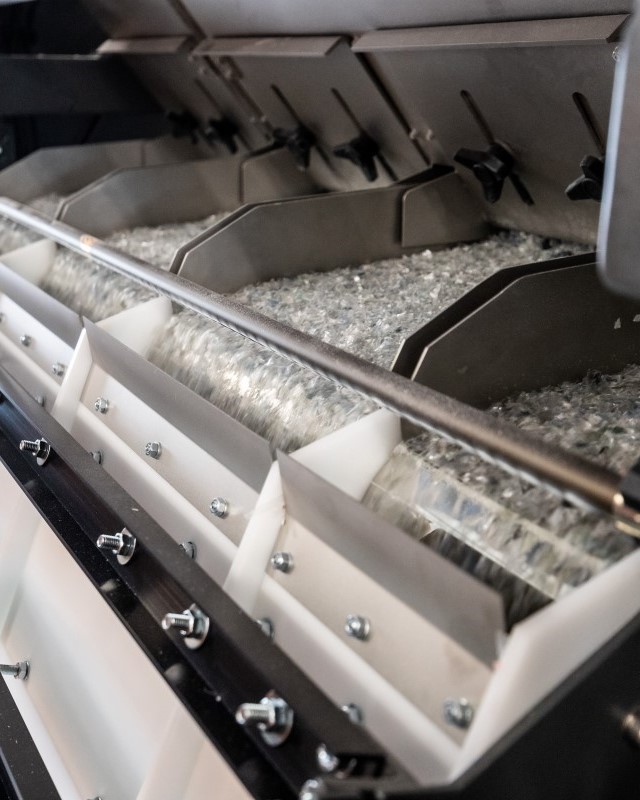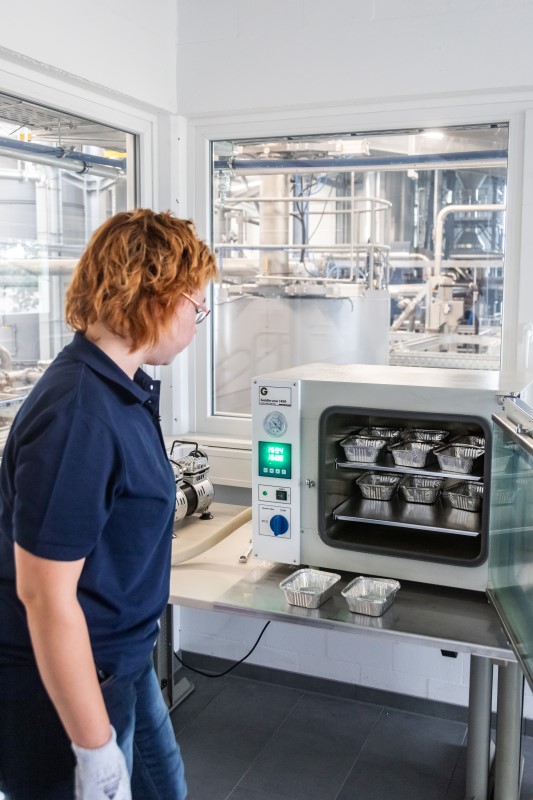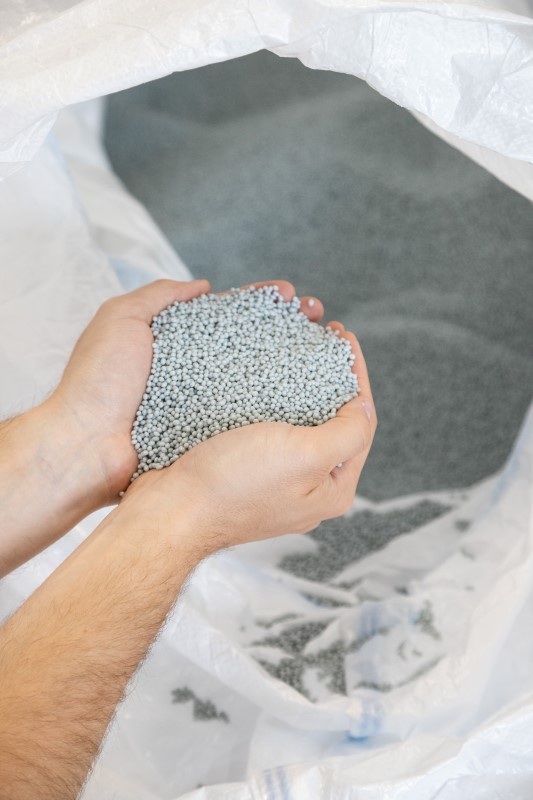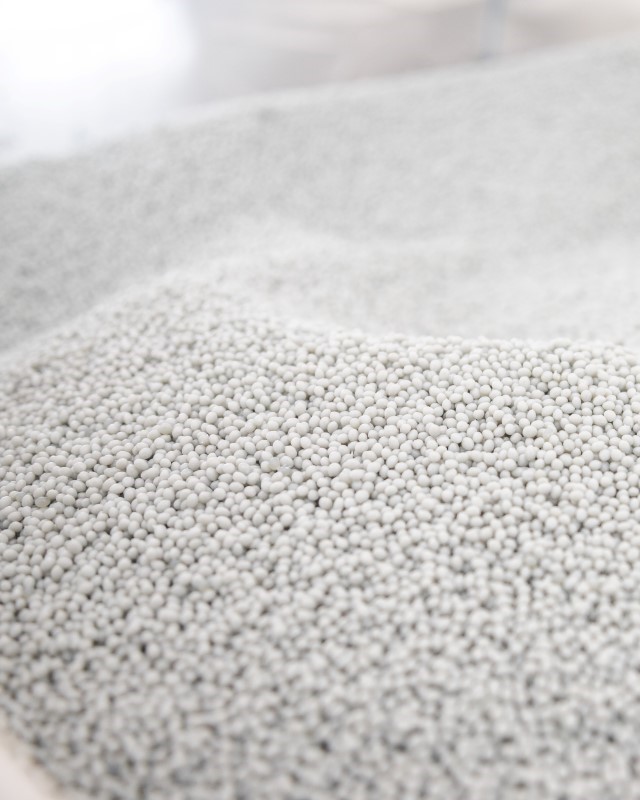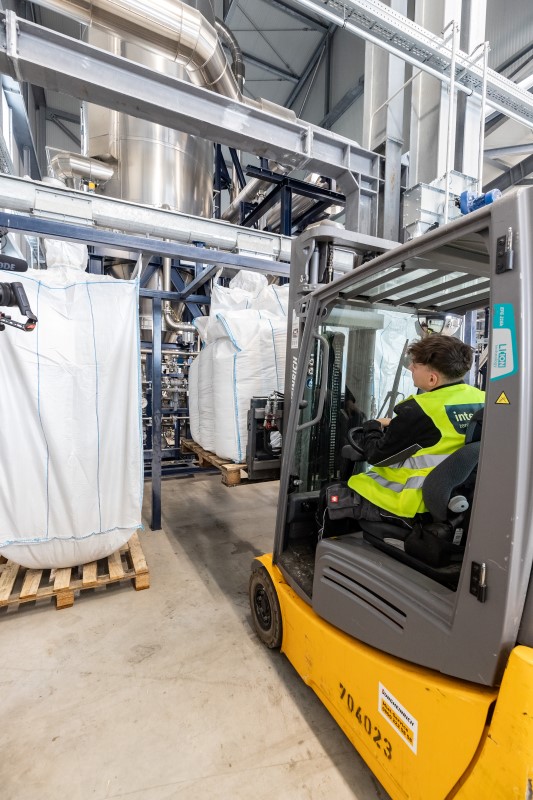From bottle to bottle: Modern PET recycling
In Liebenau, quality-tested and food-safe rPET granulates are made from shredded PET flakes
PET recycling makes a key contribution to climate protection. But how are the sustainable regranulates for new PET bottles made? With a capacity of 12,000 tonnes per year, our facility in Liebenau shows how modern technology and processes can be used to produce a high-quality recycled product for the industry and thus close the bottle-to-bottle cycle. Important for customers from the beverage industry: The system is approved by the European Food Safety Authority (EFSA).
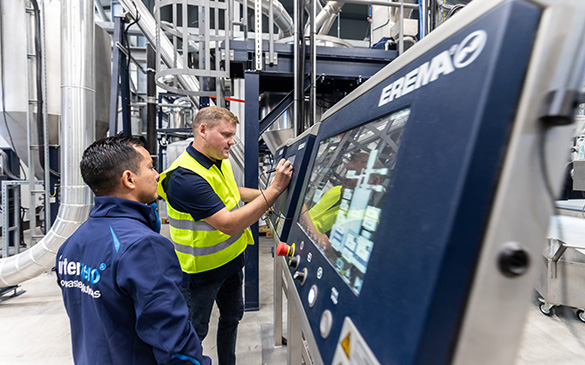
Fully automated processing process under a nitrogen atmosphere
There are no empty bottles in the PET recycling plant in Liebenau because the recycling process starts with the flake delivery. The flakes made of polyethylenterephthalate, also known as PET, are delivered by trucks weighing around 20 tonnes: already hot-washed, cleaned and shredded.
After careful quality control, the fully automated processing process begins. The flakes are homogenised and then sorted using near-infrared sorting technology. In this step, contaminants are filtered out again. This is very important to ensure the quality of the raw material for new bottles.
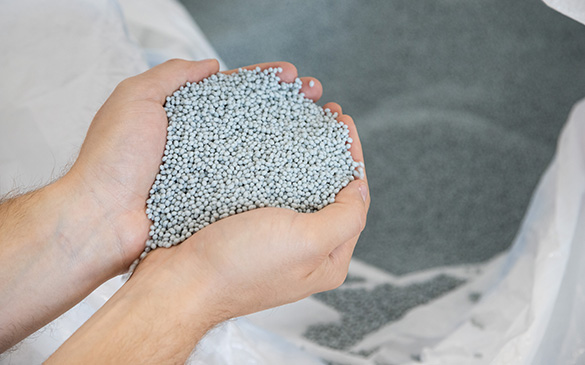
New bottles made from high quality rPET pellets
The extrusion process, which is crucial to the entire procedure, takes place under vacuum and with added nitrogen so that the residual moisture can outgas. At this point, defined rPET granulates are formed from the flakes at around 280 to 300 degrees Celsius. This means that the viscous, hot mass is pressed through a perforated panel and a granulator cuts the emerging plastic threads into many pellets in a matter of seconds. To make the regranulate fit for use as a food contact material, it is stored in silos for a further 8 to 12 hours. The added nitrogen ensures that the material does not discolour.
A final quality control ensures that the rPET granulates are food-safe. The high-quality recycled product can be used to produce bottle blanks that can be inflated into new PET bottles. Freshly filled, they are returned to retail stores and finally to our homes. With the return of bottles for the deposit, the closed bottle-to-bottle cycle begins again.
A look behind the scenes at the PET recycling plant in Liebenau



